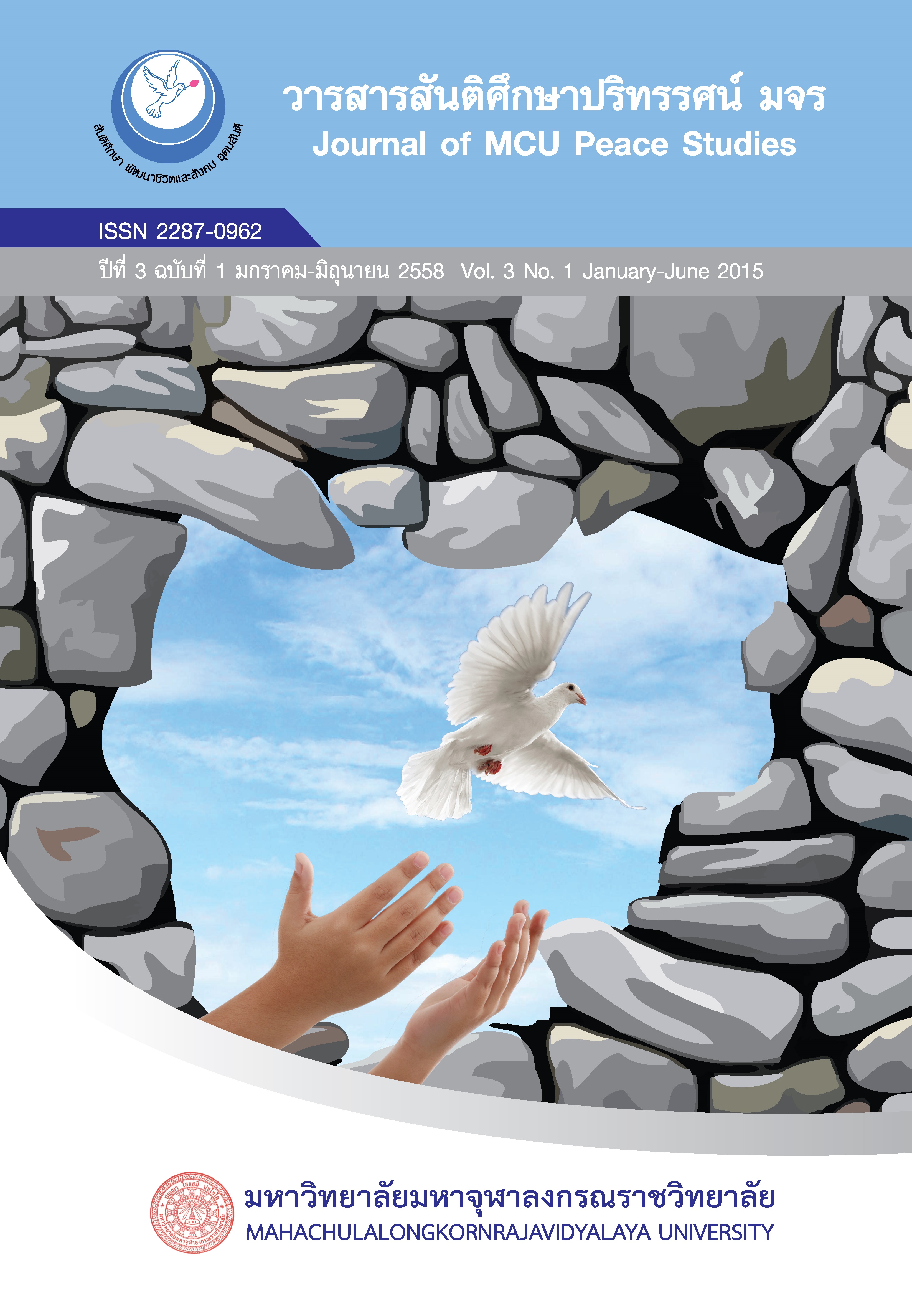THE MODEL OF THE ORGANIZATION MANAGEMENT FOR PEACE: A CASE STUDY OF WAT PANYANANTARAM KHLONGLUANG DISTRICT,PATHUMTHANI PROVINCE
Main Article Content
บทคัดย่อ
This research is of 3 objectives (1) to study the concept of the organization management; (2) to study the organization management of Wat Panyanantaram in Khlongluang district, Pathumthani province; and (3) to present the model of the organization management for peace. This research is Qualitative Research by In-Depth-interview and participatory observation as tools to analyze the data collected by the application in accordance with the corporate management peace.
From the research, it is found that the Buddhist concept and theories of the organization management are different from the Western’s in the aspects of the following: 1) the purposes are for the benefits of others and the help of developing one-selves; 2) the consistency of the transparency of having Dhammas; 3) the creation of the unity as the main thing; 4) the having precepts as the refuge in practicing; and 5) having good attendance in every related dimension.
The management of Wat Panyanantaram is the system of Sangha with the 3 principles of practices: 1) for the utilization; 2) for the frugality; and 3) for the wisdom. The management is emphasized sacrifices, sharing and loving among the human beings before dying. All of these are under the strong leadership of the abbot; and the abbot has 6 assistants in different departments, who are responsible in accordance with the designated working frames. The buildings of temples by the ideas in Buddhism yield the flourishes of morality, concentration and wisdom to the temples which lead to peace in the organizations and societies automatically.
For the Model of the Organization Management for Peace, it is found the composure of 1) the Honorable and Sincere Leadership (Le) in every direction with kindness and opportunities granted to the Personnel for their development; 2) the Dhammas (D) of self-controlling as well as the controlling of others and the works, i.e. Aparihaniyadhamma (A), Saraniyadhamma (S), Sappayas (S), Iddhipada (I), and Sagahavatthu (S). These Dhammas are called ‘ASSIS Principles’; 3) the view of the Organization Management (OM) for preventing barriers, especially in Personnel. Thus; the importance of the Organization Management for Peace should follow the ‘LeDOM’ Model
Article Details
ทัศนะและความคิดเห็นที่ปรากฏในบทความในวารสาร ถือเป็นความรับผิดชอบของผู้เขียนบทความนั้น และไม่ถือเป็นทัศนะและความรับผิดชอบของกองบรรณาธิการ ยินยอมว่าบทความเป็นลิขสิทธิ์ของวารสาร


